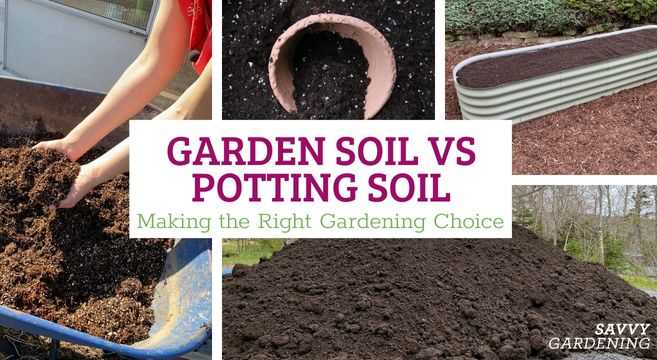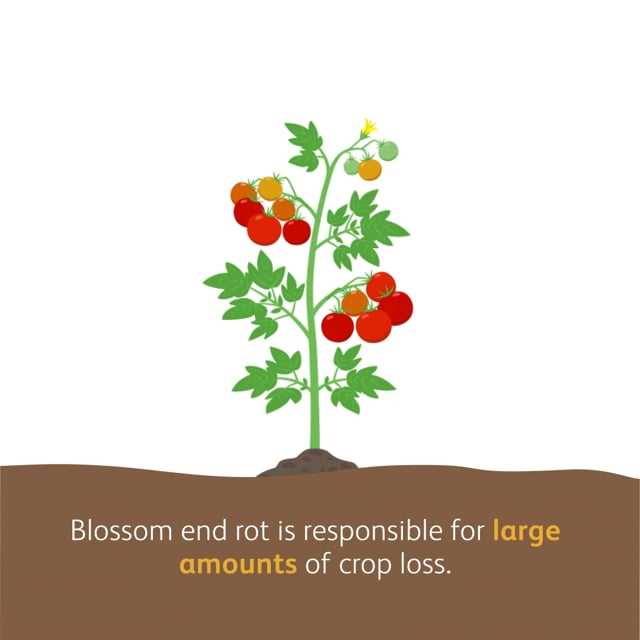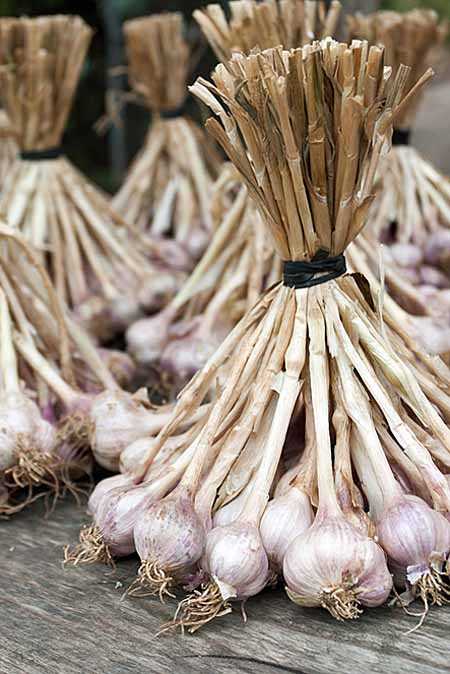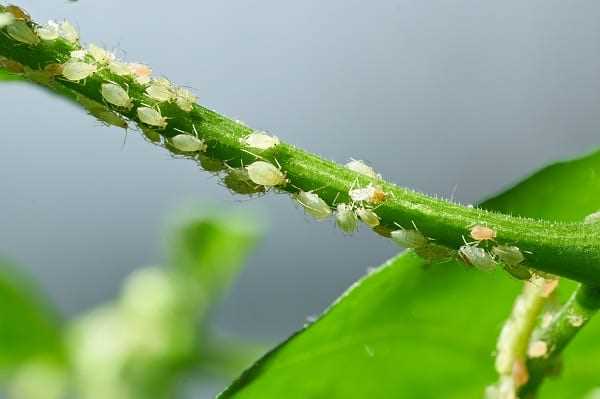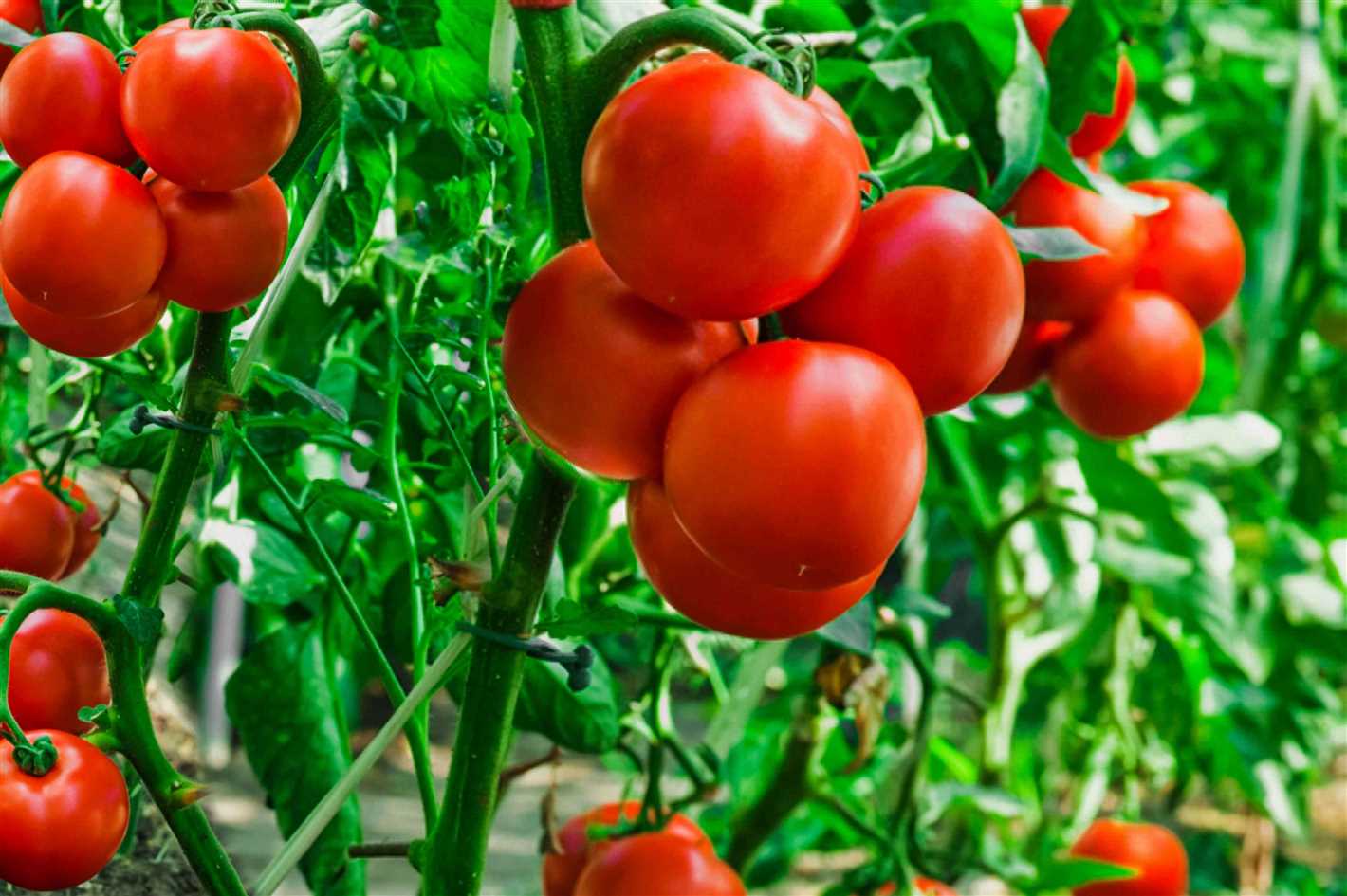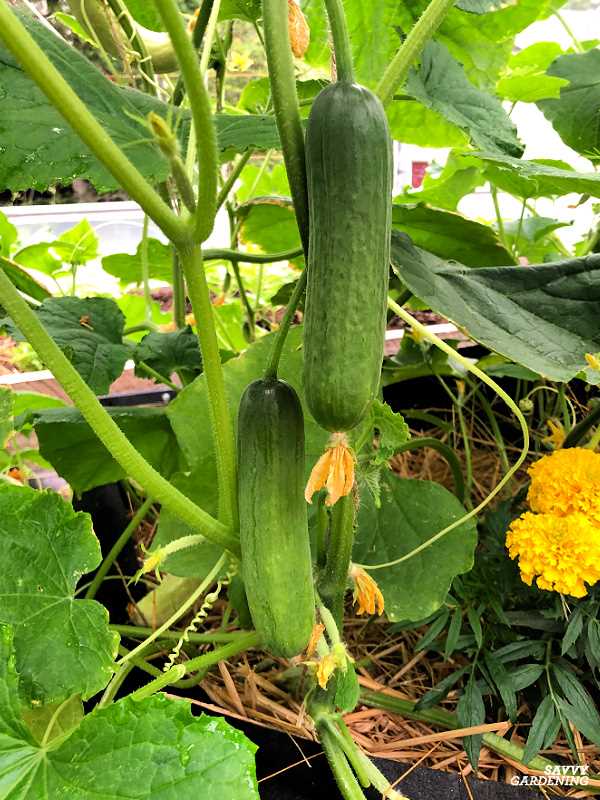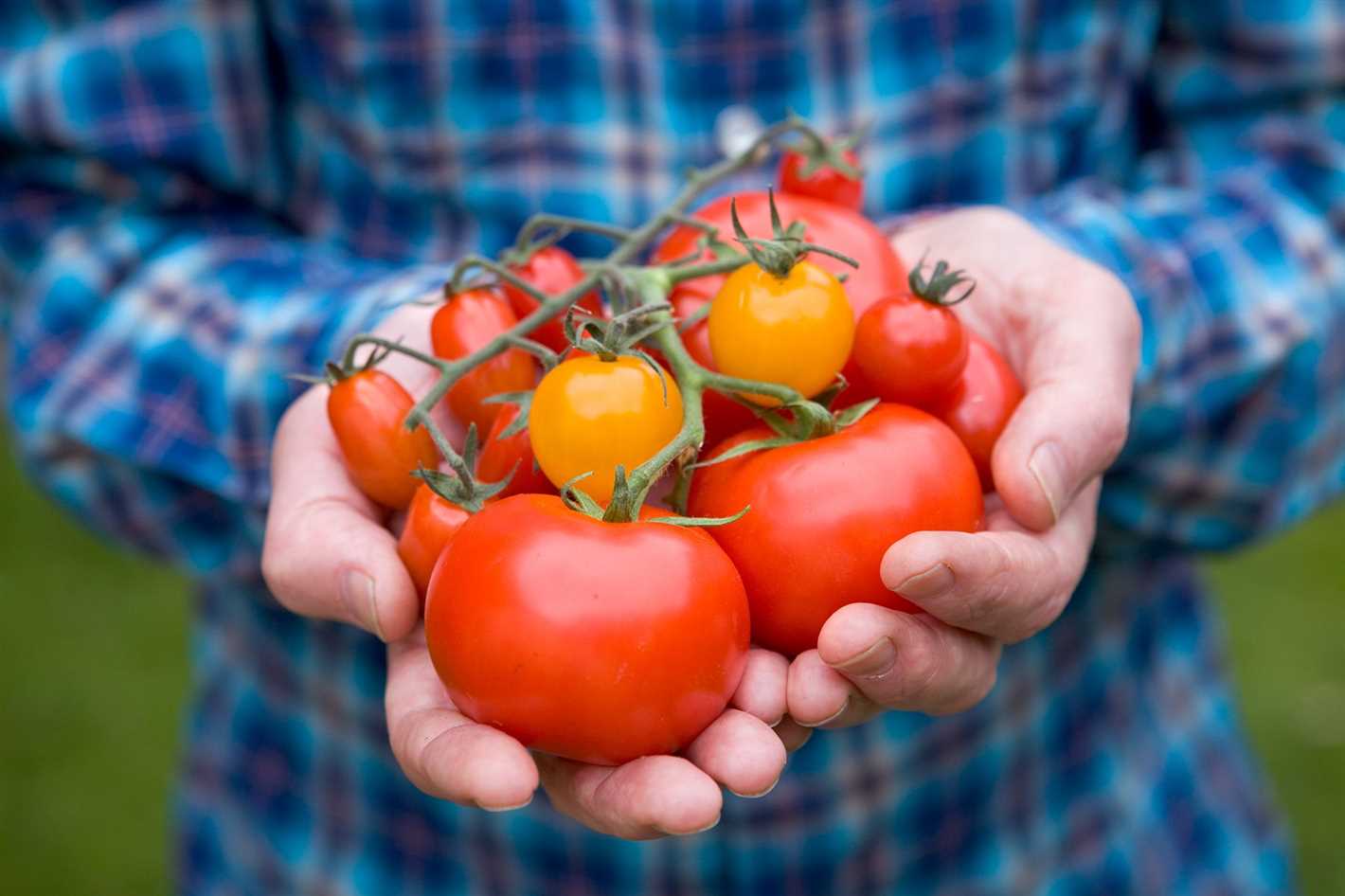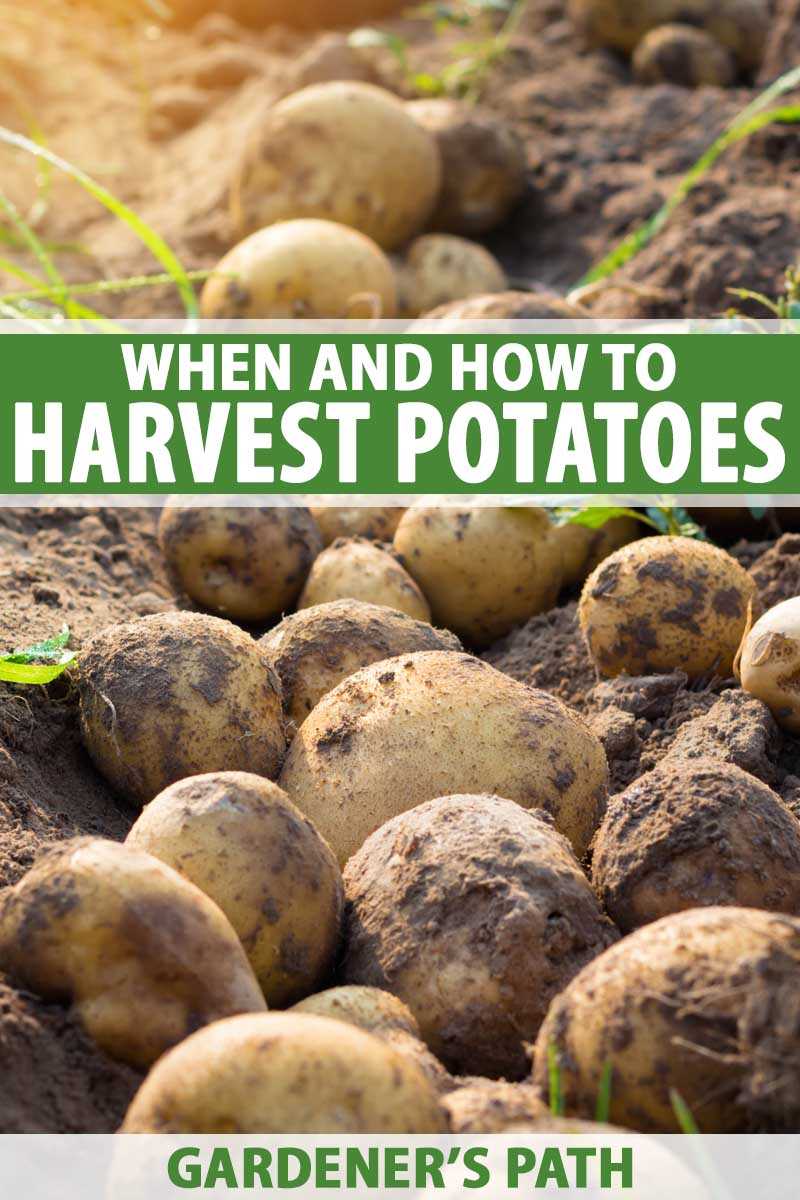- Insufficient pollination
- Extreme Temperatures
- Improper watering
- Inadequate nutrients
- Pest Infestation
- Common pests affecting cucumber plants:
- Preventing and managing pest infestation:
- Disease susceptibility
- Genetic factors
- Inappropriate pruning techniques
- “Question-Answer”
- Why do cucumbers fall off the ovary?
- How can I prevent cucumbers from falling off the ovary?
- What are the signs of improper pollination in cucumbers?
- Can lack of nutrients cause cucumbers to fall off the ovary?
- How often should I water my cucumber plants to prevent fruit drop?
- Can excessive heat or cold cause cucumbers to fall off the ovary?
- How can I protect my cucumber plants from diseases and pests?
- “Video” Your Cucumber Plants Will DIE Every Time You Make This Mistake!
When it comes to growing cucumbers, one of the most frustrating things that can happen is when they start to fall off the ovary before they are fully mature. This can be incredibly disappointing, especially after all the effort and time put into growing them. However, there are several common reasons why cucumbers fall off the ovary, and luckily, there are ways to prevent it from happening.
Firstly, one of the main reasons why cucumbers fall off the ovary is due to poor pollination. Cucumbers rely on bees and other insects to transfer pollen from the male flowers to the female flowers, which is necessary for the fruit to develop. If there is a lack of these pollinators in the garden, it can result in incomplete or failed pollination, leading to the cucumbers falling off. This can be prevented by attracting bees and other pollinators to the garden, either through planting flowers that they are attracted to or by providing bee houses.
Another reason why cucumbers may fall off the ovary is due to improper watering. Cucumbers have shallow roots, so they require consistent and adequate watering to ensure proper fruit development. Overwatering can cause the fruit to become stressed and may result in the cucumbers falling off prematurely. On the other hand, underwatering can cause the plant to become dehydrated, leading to the same outcome. It is important to maintain a consistent watering schedule and to ensure that the soil is moist but not waterlogged.
In addition to poor pollination and improper watering, cucumbers can also fall off the ovary due to nutrient deficiencies. Cucumbers require a balanced supply of nutrients, including nitrogen, phosphorous, and potassium, for healthy growth and fruit development. If the plant is lacking in any of these essential nutrients, it may result in the cucumbers falling off prematurely. Regularly fertilizing the soil with compost or a balanced organic fertilizer can help prevent nutrient deficiencies and promote healthy fruit production.
Overall, there are several reasons why cucumbers may fall off the ovary, including poor pollination, improper watering, and nutrient deficiencies. By addressing these issues and taking the necessary steps to prevent them, growers can increase their chances of successfully producing mature cucumbers. This can be a rewarding experience and can lead to delicious, homegrown cucumbers that are enjoyed by the whole family.
Insufficient pollination
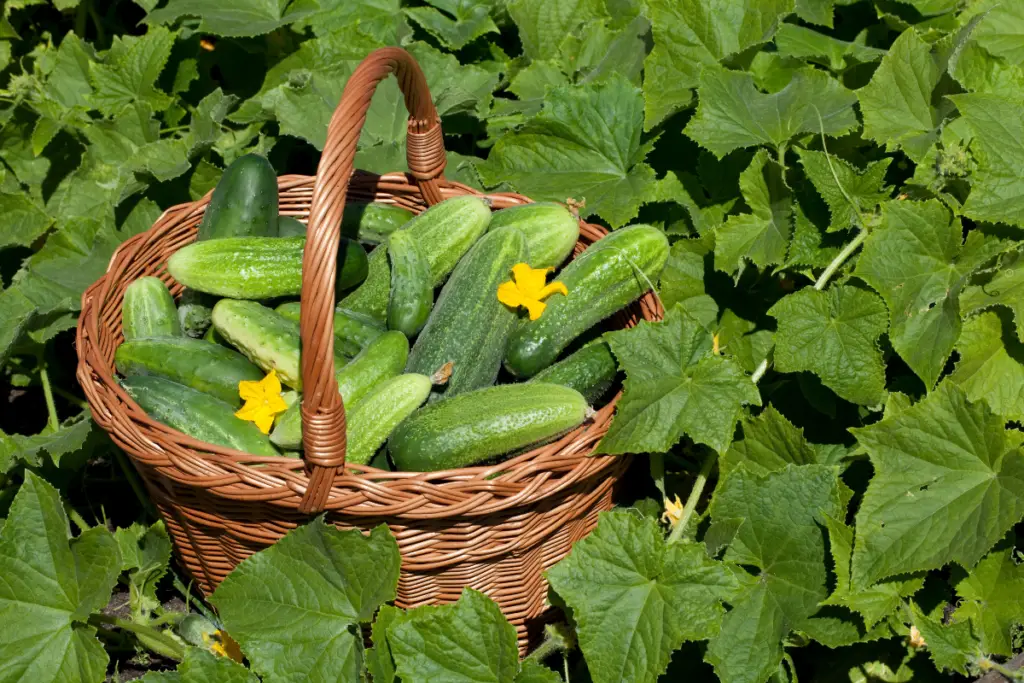
Insufficient pollination is one of the common reasons why cucumbers fall off the ovary. Cucumbers are typically pollinated by bees, who transfer pollen from the male flowers to the female flowers. When there are not enough bees or other pollinators in the area, the cucumbers may not receive enough pollen to develop properly.
To prevent insufficient pollination, you can take several steps:
- Encourage pollinators by planting flowers or other plants that attract bees and other insects nearby. This will increase the chances of pollinators visiting your cucumber plants.
- Hand pollinate the cucumbers yourself. You can do this by gently brushing the inside of a male flower with a cotton swab or small brush, and then transferring the pollen to the inside of a female flower. Repeat this process for several flowers to ensure sufficient pollination.
- Avoid using pesticides or other chemicals that can harm bees and other pollinators. These chemicals can reduce the population of pollinators in your garden and negatively impact the pollination process.
- Plant a variety of cucumber plants that have different flowering and fruiting times. This can help ensure that there are always flowers available for pollination, increasing the chances of successful pollination and fruit set.
By taking these steps, you can help improve the pollination process for your cucumber plants and reduce the chances of cucumbers falling off the ovary due to insufficient pollination. This can ultimately lead to better yields and healthier cucumber plants.
Extreme Temperatures
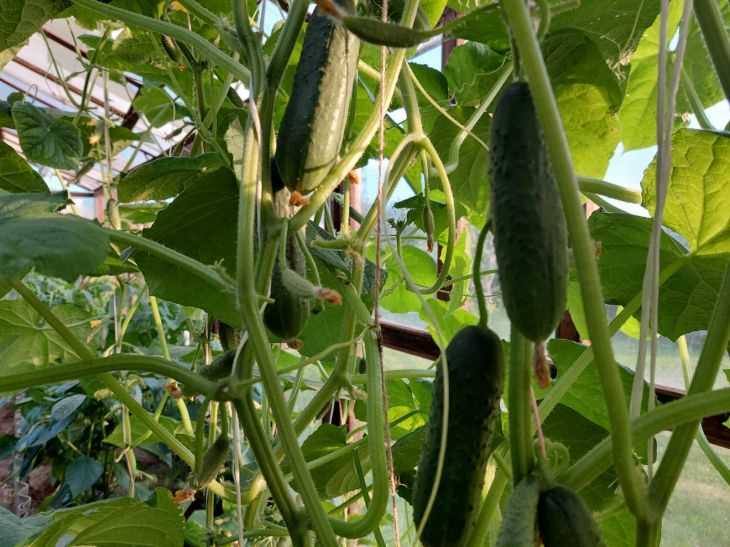
Extreme temperatures can have a significant impact on the growth and development of cucumber plants, leading to the falling off of cucumbers from the ovary. Both excessively high and low temperatures can disrupt the pollination process and hinder the formation of fruit.
High temperatures:
- When the temperature rises above 85°F (29.5°C), cucumber plants may experience heat stress. High temperatures can cause the pollen to become non-viable, making it difficult for successful pollination to occur.
- Heat stress can also lead to the wilting of flowers and inadequate nutrient uptake, which can result in the abortion of young fruits.
- To prevent cucumbers from falling off due to high temperatures, provide shade to the plants during the hottest part of the day or consider growing them in a cooler, shaded area.
Low temperatures:
- On the other extreme, low temperatures can also pose a threat to the development of cucumber fruit.
- When the temperature drops below 50°F (10°C), it can adversely affect the growth and germination of pollen, hindering pollination and resulting in the shedding of cucumbers.
- Protecting the plants from cold temperatures can be done by using row covers or planting them in raised beds to improve drainage.
It is important to monitor the temperature fluctuations in your growing area and take preventive measures to create the optimal conditions for cucumber growth. Providing adequate shade or protection from extreme temperatures can help ensure healthy flower and fruit development, preventing the premature falling off of cucumbers from the ovary.
Improper watering
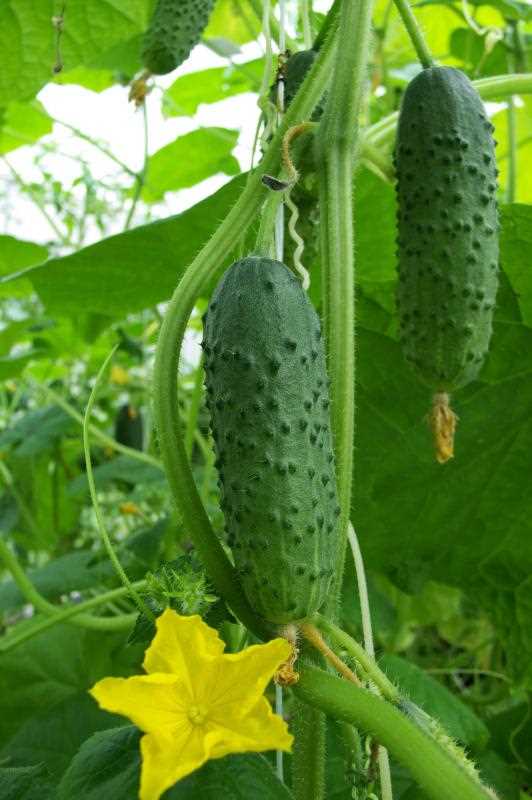
Proper watering is crucial for the development and growth of cucumbers. If cucumbers do not receive sufficient water, it can cause stress to the plants and result in the falling off of the ovaries. On the other hand, overwatering can also lead to the same issue. Here are some reasons why improper watering can cause cucumber ovaries to fall off and how to prevent it:
- Insufficient watering: Lack of water can cause the ovaries to dry out and fall off prematurely. It is important to ensure that cucumbers receive an adequate amount of water, especially during dry periods. Generally, cucumbers require about 1-2 inches of water per week.
- Overwatering: Overwatering can lead to the development of root rot, which can result in the loss of cucumber ovaries. To prevent overwatering, it is essential to provide proper drainage for the plants. Avoid watering cucumbers excessively and make sure the soil is well-drained.
Here are some tips to ensure proper watering for cucumbers:
- Establish a watering schedule: Set up a regular watering schedule and stick to it. This will help ensure that cucumbers receive consistent moisture without being under or overwatered.
- Water deeply: When watering, make sure to water deeply to encourage deep root growth. This will help cucumbers withstand drought conditions better and reduce the risk of ovaries falling off due to insufficient watering.
- Use mulch: Applying a layer of organic mulch, such as straw or wood chips, around cucumber plants can help retain moisture in the soil and prevent water evaporation. This will help maintain a more consistent and even level of soil moisture.
- Monitor soil moisture: Regularly check the moisture level of the soil around cucumber plants. This can be done by sticking your finger into the soil to a depth of about an inch. If it feels dry, it’s time to water.
By following these watering practices, you can help prevent the falling off of cucumber ovaries and ensure healthy growth and development of your cucumber plants.
Inadequate nutrients
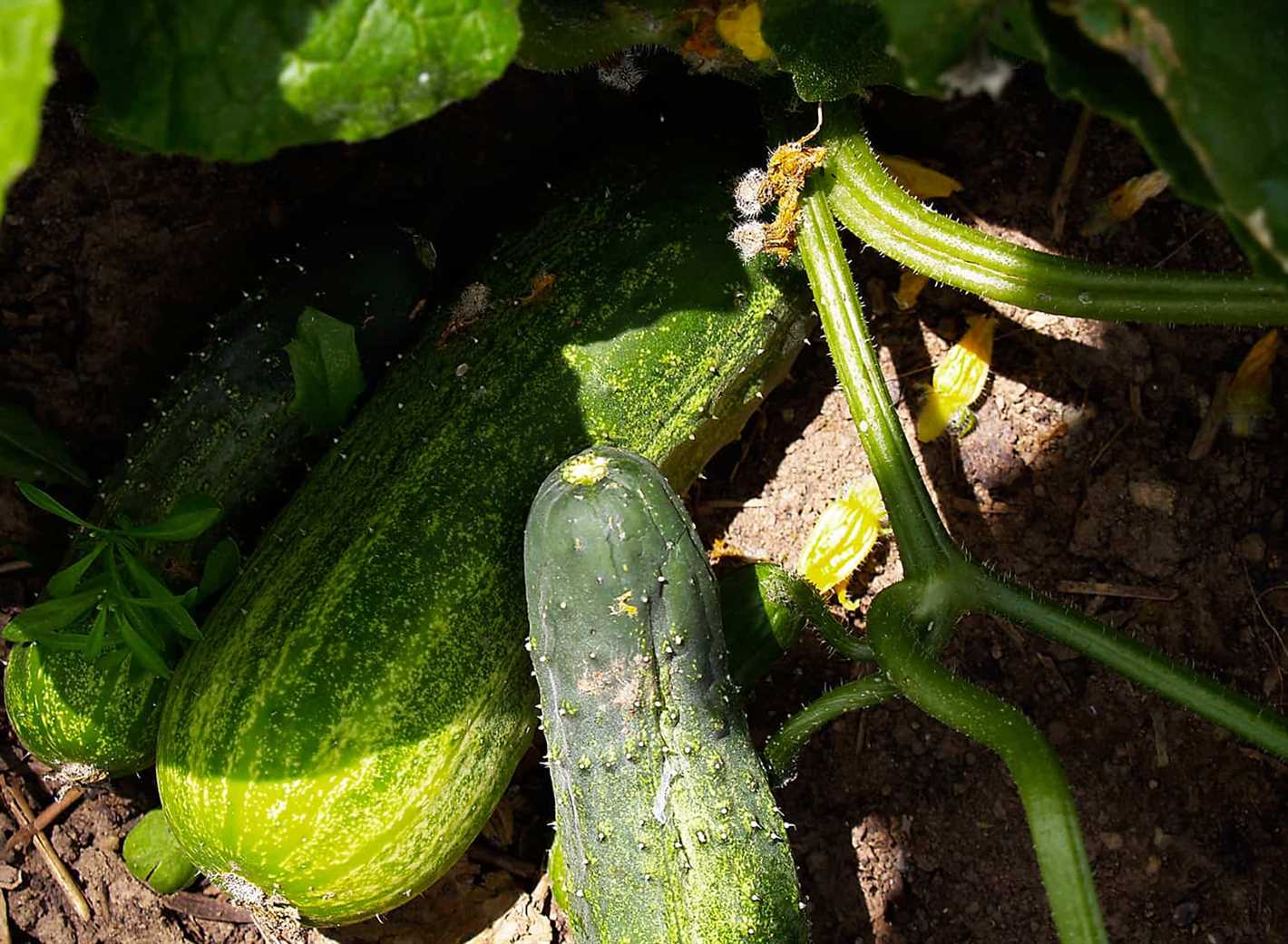
One possible reason for cucumbers falling off the ovary is inadequate nutrients. Cucumbers are heavy feeders and require a steady supply of nutrients to support their growth and development. If the plant is not receiving enough essential nutrients, it may not be able to sustain the growth of the fruits, causing them to fall off prematurely.
Nutrient deficiencies can occur due to various reasons, such as poor soil quality, improper fertilization, or inadequate watering. Some important nutrients for cucumber plants include:
- Nitrogen (N): Nitrogen is essential for leafy growth and overall plant development. Inadequate nitrogen levels can lead to stunted growth and poor fruit set.
- Phosphorus (P): Phosphorus is crucial for fruit development and flowering. A lack of phosphorus can result in weak fruit set and early fruit drop.
- Potassium (K): Potassium is important for fruit quality and overall plant health. Insufficient potassium levels can lead to fruit drop and increased susceptibility to diseases.
- Calcium (Ca): Calcium is necessary for cell wall development and preventing blossom end rot. Calcium deficiency can cause fruit drop and poor fruit quality.
To prevent inadequate nutrients:
- Test the soil before planting cucumbers to determine nutrient deficiencies.
- Amend the soil with organic matter, such as compost, to improve its fertility and nutrient content.
- Follow a regular fertilization schedule using a balanced fertilizer that contains all the essential nutrients.
- Monitor the plants for signs of nutrient deficiencies, such as yellowing leaves or stunted growth, and address them promptly.
- Water the plants regularly and deeply to ensure nutrients are effectively taken up by the roots.
- Avoid over-fertilizing, as excessive nutrient levels can also lead to cucumber drop.
Providing adequate nutrients to cucumber plants will not only help prevent fruit drop but also promote healthy growth and a bountiful harvest.
Pest Infestation
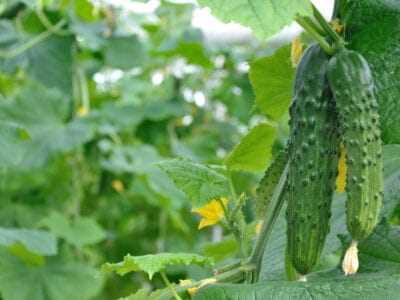
One of the reasons why cucumbers may fall off the ovary is due to pest infestation. Various pests can attack cucumber plants, causing damage to the fruit and leading to premature drop.
Common pests affecting cucumber plants:
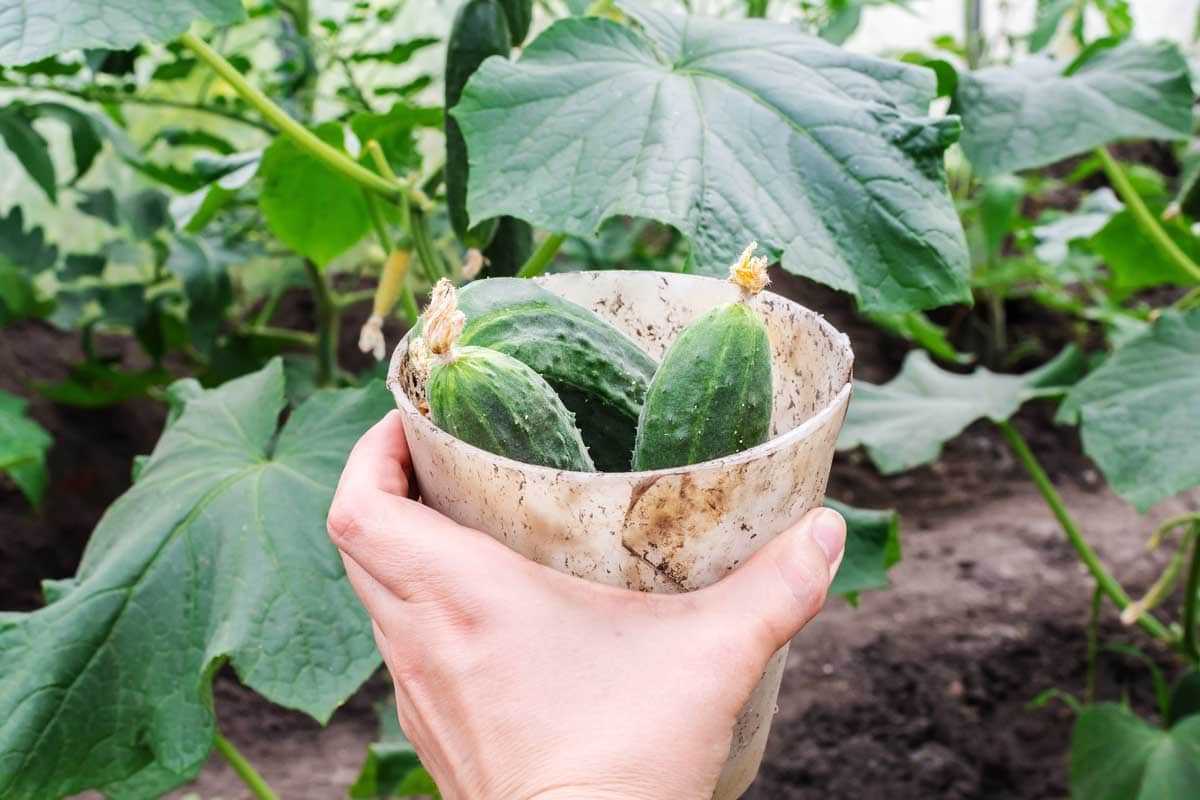
- Aphids: These small, soft-bodied insects feed on the sap of the cucumber plant, causing the leaves to curl and become distorted. Their feeding can weaken the plant and result in the fruit dropping off.
- Cucumber beetles: These beetles can transmit bacterial wilt and feed on the leaves and flowers of the cucumber plant. Their larvae can also damage the roots, resulting in poor nutrient uptake and fruit drop.
- Fruit flies: These pests lay their eggs on the fruit, and the hatched larvae feed on the cucumber, causing it to rot and drop prematurely.
- Spider mites: These tiny pests can suck the sap from cucumber leaves, resulting in a yellowing and withering of the foliage. Severe infestations can weaken the plant and lead to fruit drop.
Preventing and managing pest infestation:
Here are some effective measures to prevent and manage pests in cucumber plants:
- Regular monitoring: Inspect your cucumber plants regularly to detect any signs of pest infestation. Look for visual cues such as chewed leaves, distorted foliage, or any presence of pests.
- Physical barriers: Use row covers or nets to protect cucumber plants from pests like cucumber beetles and fruit flies.
- Companion planting: Planting companion plants, such as marigolds or nasturtiums, can help deter aphids and other pests due to their strong scent.
- Natural predators: Encourage natural predators like ladybugs, lacewings, and spiders to control aphids and other pests in your garden.
- Organic sprays: Treat cucumber plants with organic insecticides, such as neem oil or insecticidal soaps, to control pest infestations. Follow the instructions carefully and avoid excessive use to prevent harm to beneficial insects.
- Cultural practices: Practice good sanitation by removing and destroying infested leaves or fallen fruit. This can help reduce the population of pests in your garden.
- Rotate crops: Avoid planting cucumbers in the same location year after year. Crop rotation can disrupt the life cycle of pests and reduce their impact on the plants.
- Healthy soil: Maintaining a healthy soil with proper nutrition and moisture can promote the vigor of cucumber plants, making them more resistant to pest attacks.
By implementing these preventive measures and promptly addressing pest infestations, you can help ensure the health and productivity of your cucumber plants, reducing the chances of fruit drop.
Disease susceptibility
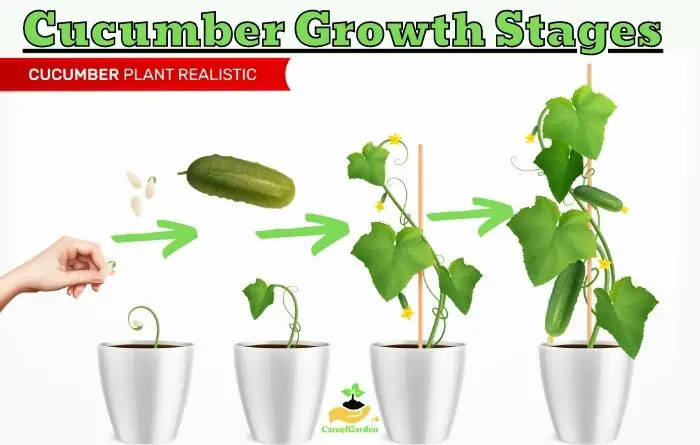
Cucumbers are susceptible to several diseases that can cause the fruit to fall off the ovary. Some common diseases that affect cucumbers include:
- Downy mildew: This fungal disease causes yellow spots on the leaves and can spread to the fruit. Infected fruits may drop prematurely.
- Anthracnose: This fungal disease causes dark lesions on the fruit and can lead to fruit drop.
- Bacterial wilt: This bacterial disease causes wilting of the plant and can cause the fruit to drop off.
- Angular leaf spot: This bacterial disease causes water-soaked lesions on the leaves and can lead to fruit drop.
- Virus infections: Various viruses can infect cucumber plants and cause fruit drop.
Preventing disease susceptibility is crucial to ensure healthy cucumber plants and prevent fruit drop. Here are some preventive measures you can take:
- Plant disease-resistant varieties: Choose cucumber varieties that are resistant to common cucumber diseases. This can significantly reduce the chances of fruit drop.
- Practise crop rotation: Do not plant cucumbers or any other cucurbit family plants in the same location for consecutive seasons. Crop rotation helps to reduce the buildup of soil-borne diseases.
- Implement proper sanitation: Clean up plant debris and fallen fruits regularly to prevent the spread of diseases. Dispose of infected plant material properly.
- Avoid overhead watering: Water the plants at the base to avoid wetting the foliage, as this can promote the development of fungal diseases.
- Monitor and control pests: Pests can transmit diseases, so it is important to regularly inspect the plants for any signs of infestation and take appropriate measures to control them.
By following these preventive measures, you can reduce the likelihood of disease susceptibility in cucumbers and prevent fruit drop, ensuring a healthy harvest.
Genetic factors
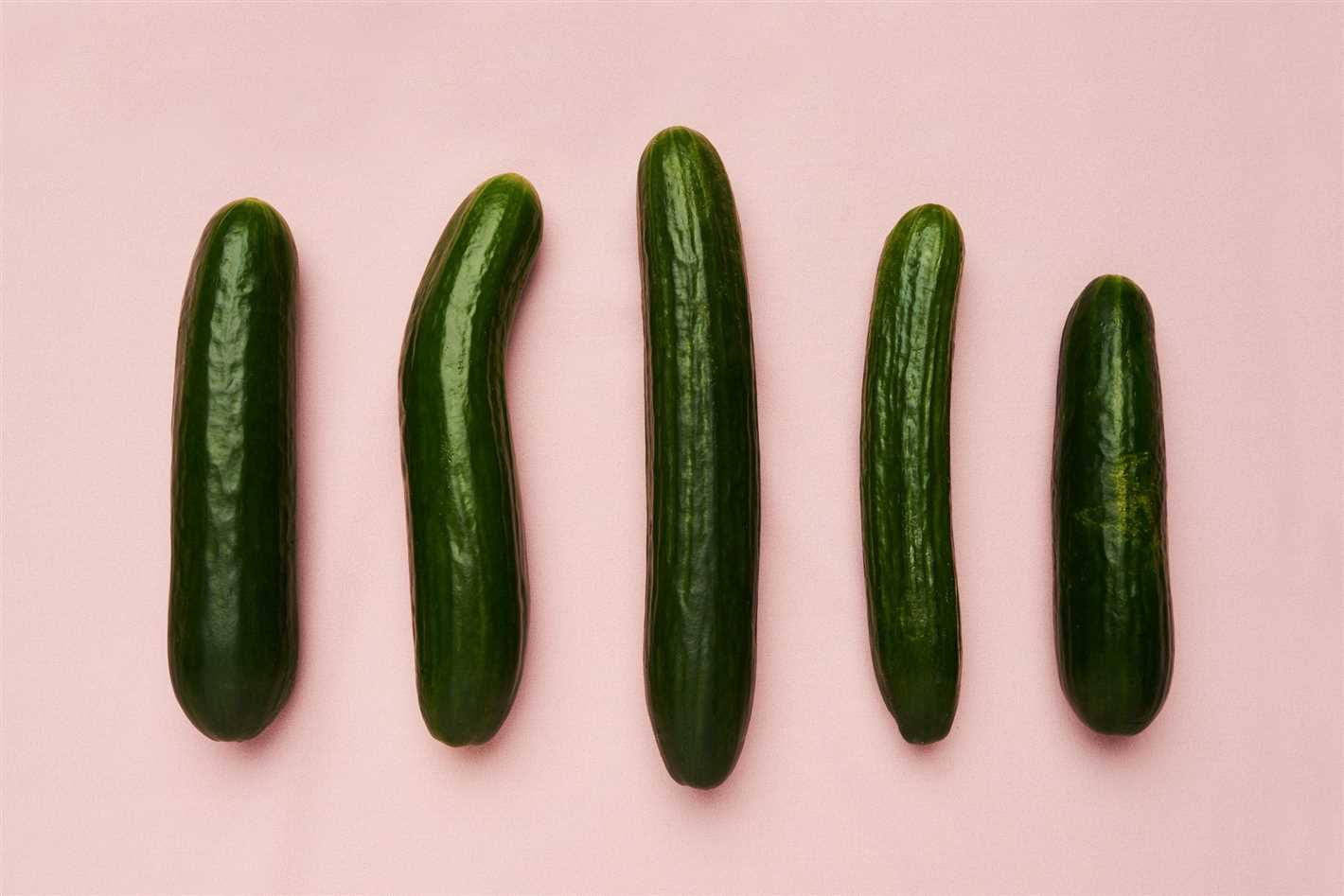
Genetic factors play a significant role in determining the fruit-setting ability of cucumber plants. Different cucumber varieties have different genetic traits that affect their ability to set fruit and retain them until maturity.
Some cucumber varieties are more prone to fruit drop due to genetic factors, while others have better fruit-setting ability. The genetic traits that influence fruit retention include the ability to resist stress, such as high temperatures, drought, or diseases. Cucumbers with stronger genetic traits are more likely to retain their fruits even under adverse conditions.
Genetic factors also determine the size and shape of cucumber fruits. Some cucumber varieties are known for producing larger fruits, while others tend to have smaller ones. The genetic makeup of a cucumber plant affects its ability to develop and support a certain fruit size.
Plant breeders have been working on developing cucumber varieties with improved fruit-setting ability and resistance to stress. Through selective breeding and genetic engineering techniques, they aim to create cucumber plants with desirable genetic traits that result in higher fruit retention rates.
- Genetic factors play a significant role in determining fruit-setting ability
- Some cucumber varieties are more prone to fruit drop due to genetic factors
- Genetic traits influence fruit retention under adverse conditions
- Genetic factors also determine the size and shape of cucumber fruits
- Plant breeders are developing cucumber varieties with improved fruit-setting ability and stress resistance
Inappropriate pruning techniques
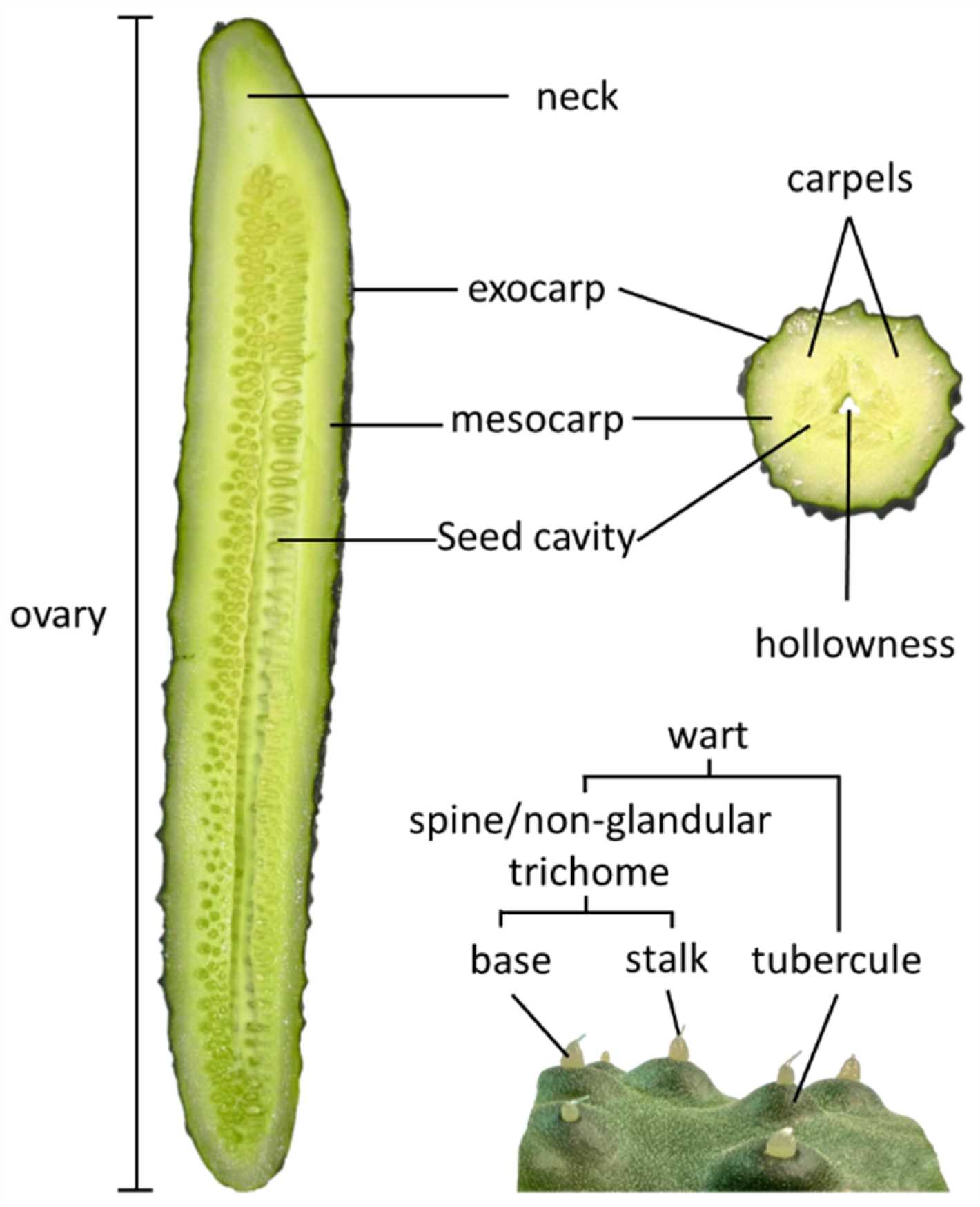
Pruning is an important technique in cucumber cultivation that helps control the growth of the plant and maximize yield. However, inappropriate pruning techniques can lead to the falling off of cucumbers from the ovary. Here are some common pruning mistakes that you should avoid:
- Over-pruning: Pruning the cucumber plant too aggressively can remove too many leaves and reduce the plant’s ability to produce energy through photosynthesis. This can weaken the plant and cause the cucumbers to fall off.
- Pruning too early: Pruning the cucumber plant too early in its development can disrupt the natural growth process and lead to flower and fruit drop. It is important to allow the plant to establish a strong root system before starting pruning.
- Improper timing: Pruning at the wrong time can also cause cucumbers to fall off. It is important to know the appropriate time to prune based on the variety of cucumber being grown.
- Wrong pruning technique: Using incorrect pruning techniques, such as using dull or dirty pruning tools, can damage the plant and increase the risk of disease transmission. It is important to use clean and sharp pruning tools to make clean cuts.
To prevent cucumbers from falling off the ovary due to inappropriate pruning techniques, it is important to follow proper pruning guidelines. These may vary depending on the specific variety of cucumber being grown and local growing conditions. Consulting with a local horticulture specialist or agricultural extension office can provide valuable guidance.
“Question-Answer”
Why do cucumbers fall off the ovary?
Cucumbers can fall off the ovary due to various reasons. The most common reasons include improper pollination, lack of nutrients or water, excessive heat or cold, and disease or pest infestation.
How can I prevent cucumbers from falling off the ovary?
To prevent cucumbers from falling off the ovary, you can take several steps. First, ensure proper pollination by attracting bees and other pollinators to your garden. Secondly, provide adequate nutrients and water to the plants. Regularly fertilize the soil with organic matter and keep the soil consistently moist. Additionally, protect the plants from extreme temperatures by providing shade or using mulch. Finally, regularly inspect the plants for signs of disease or pest infestation and take appropriate measures to control them.
What are the signs of improper pollination in cucumbers?
Signs of improper pollination in cucumbers include the falling off of flowers without setting fruit, misshapen or deformed fruit, and the presence of only female flowers without any male flowers for pollination.
Can lack of nutrients cause cucumbers to fall off the ovary?
Yes, a lack of nutrients, particularly nitrogen, phosphorus, and potassium, can cause cucumbers to fall off the ovary. These nutrients are essential for proper plant growth and development, and a deficiency can lead to weak or underdeveloped fruit that easily falls off.
How often should I water my cucumber plants to prevent fruit drop?
Cucumber plants require consistent and regular watering to prevent fruit drop. It is recommended to water them deeply once or twice a week, providing enough water to reach the root zone. The soil should be evenly moist, but not waterlogged. Mulching around the plants can help retain moisture and reduce the frequency of watering.
Can excessive heat or cold cause cucumbers to fall off the ovary?
Yes, both excessive heat and cold can cause cucumbers to fall off the ovary. High temperatures can cause the flowers to drop prematurely, while cold temperatures can damage the ovary and inhibit fruit development. It is important to provide shade or protect the plants from extreme temperatures to prevent fruit drop.
How can I protect my cucumber plants from diseases and pests?
To protect cucumber plants from diseases and pests, you can take several measures. Firstly, practice good garden hygiene by removing any fallen leaves or debris that can harbor pests or pathogens. Secondly, regularly inspect the plants for signs of disease or pest infestation and take immediate action if necessary. This can include using organic or chemical insecticides, fungicides, or other treatments. Additionally, you can use physical barriers like row covers to prevent pests from reaching the plants, or companion planting to repel pests naturally.
